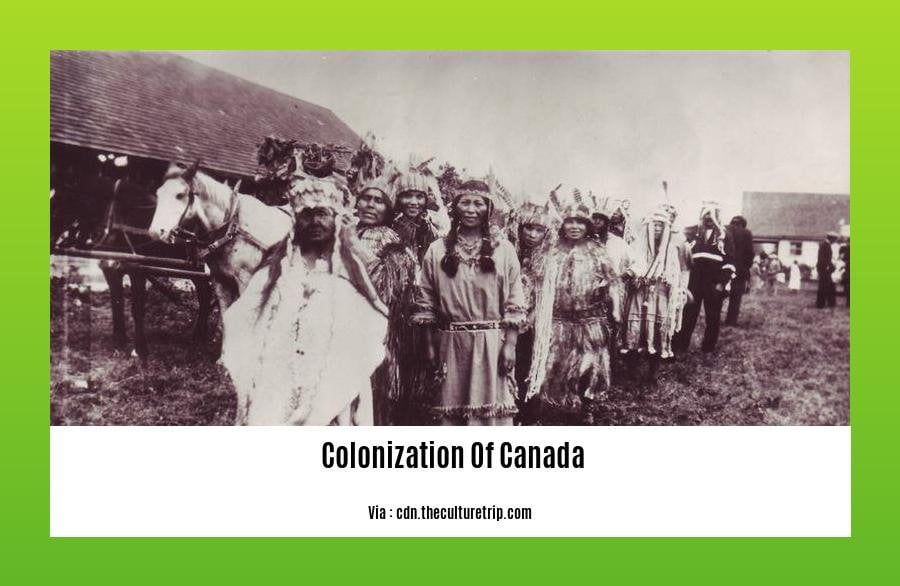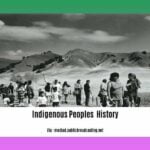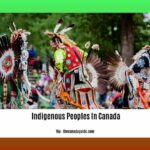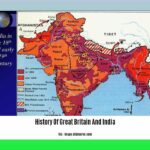The Enduring Legacy of the Colonization of Canada: A Historian’s Perspective
Key Takeaways:
- Indigenous peoples inhabited North America thousands of years before European arrival.
- European colonization by France and Britain shaped North America.
- Canada became a British colony after the Seven Years’ War.
- Canada gained independence through Confederation in 1867.
- Canada’s post-war era brought economic prosperity and social advancements.
Colonization of Canada

Pre-Colonization
Long before colonization of Canada by Europeans, the land was home to diverse Indigenous societies with rich cultures. They lived in harmony with the environment, relying on hunting, gathering, and, in some areas, agriculture.
European Arrival and Colonization
In the late 15th century, French and British explorers arrived in North America. France established settlements in what became known as New France, while Britain claimed territories along the Atlantic coast. The colonization of Canada began as a struggle for control between these two European powers.
British Dominance
After the Seven Years’ War (1756-1763), Britain emerged victorious and gained control of New France. British rule over Canada was marked by policies aimed at assimilating Indigenous peoples and exploiting natural resources.
Confederation and Beyond
In 1867, several British colonies in North America united to form the Dominion of Canada. This new nation faced challenges as it navigated its post-colonial identity. The 20th century brought economic prosperity, social reforms, and a growing awareness of Indigenous rights.
Enduring Legacy
The colonization of Canada has left a profound and complex legacy. It shaped the nation’s political, economic, and social structures. It also resulted in the displacement and marginalization of Indigenous peoples, whose cultures and traditions were often suppressed or ignored.
Understanding the Legacy
To understand modern Canada, it is essential to grapple with the legacy of colonization of Canada. This includes recognizing the contributions and perspectives of Indigenous peoples, acknowledging the impact of colonial policies, and working towards reconciliation and justice.
Explore the rich and captivating history of Canada, a tapestry woven with the threads of diverse cultures and pivotal events.
Delve into the intricacies of Canadian Confederation, a remarkable political journey that united a nation from sea to sea.
Discover the enduring presence and resilience of Indigenous peoples in Canada, whose traditions and contributions have shaped the country’s identity for centuries.
Impacts on Indigenous Peoples
The colonization of Canada had a devastating impact on the Indigenous peoples who had inhabited the land for centuries. Here’s what it meant for them:
Imposed Values and Policies
Colonizers imposed their own cultural norms, religions, and laws on Indigenous Peoples, undermining their traditional ways of life and governance.
Land Seizure and Economic Dependency
Vast tracts of Indigenous land were seized, and access to traditional resources was restricted. This created a dependency on colonizers for sustenance and well-being.
Disadvantageous Policies
Government policies and laws often ignored Indigenous interests and discriminated against them, leading to economic disadvantage and social marginalization.
Cultural Assimilation and Loss of Identity
Colonizers sought to assimilate Indigenous Peoples into their own society, suppressing Indigenous languages, cultural practices, and spiritual beliefs, resulting in a loss of identity and intergenerational trauma.
Key Takeaways:
- Imposition of Colonizer Values: Colonizers forced their own cultural norms and governance systems on Indigenous Peoples.
- Land Seizure and Economic Dependency: Indigenous lands were confiscated, creating economic dependence on colonizers.
- Disadvantageous Policies: Policies were implemented that ignored Indigenous interests and discriminated against them.
- Cultural Assimilation and Loss of Identity: Indigenous languages, practices, and beliefs were suppressed, leading to a loss of identity and intergenerational trauma.
Relevant URLs:
- Colonization – Pulling Together: Foundations Guide
- Impact of Colonization on Indigenous Peoples’ Culture
Economic and Social Development
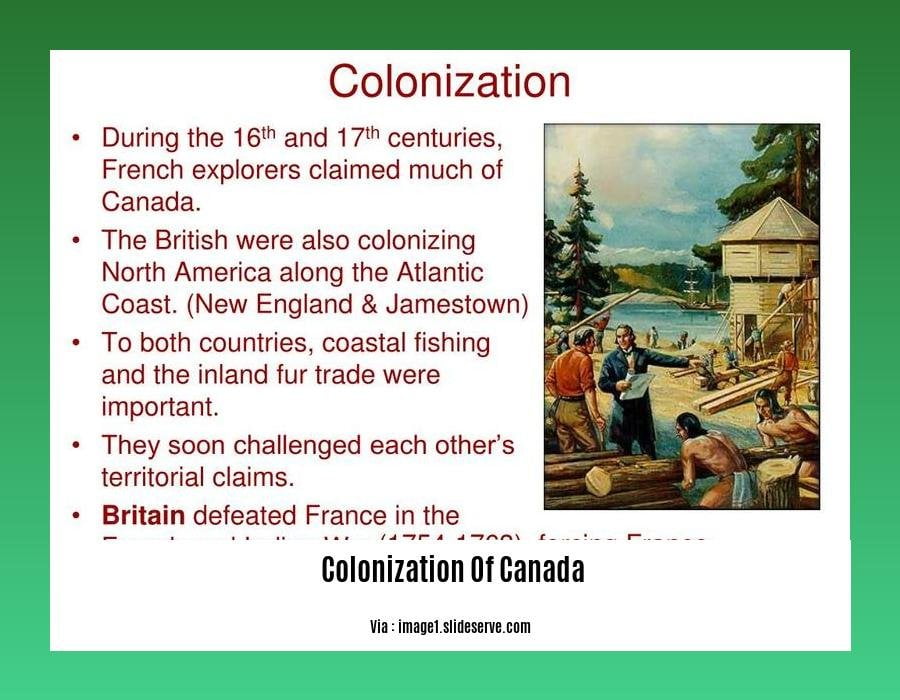
The colonization of Canada profoundly impacted the economic and social development of Indigenous peoples, forever altering their traditional way of life.
Economic Disruptions:
- Colonizers disrupted Indigenous trade routes, limiting access to resources and trade goods.
- Forced assimilation policies undermined traditional economic practices, such as hunting and fishing.
- Land dispossession deprived Indigenous peoples of their traditional livelihoods.
Social Consequences:
- Colonial policies aimed to assimilate Indigenous peoples into European society, suppressing their languages, cultures, and spiritual practices.
- Forced displacement from traditional territories led to social fragmentation and loss of identity.
- Residential schools attempted to erase Indigenous culture and language, leaving lasting trauma on generations.
Modern Challenges:
Today, Indigenous peoples in Canada face ongoing challenges as a result of colonization:
- Lower employment and income rates compared to the general population
- Health disparities and higher rates of substance abuse
- Overrepresentation in the criminal justice system
Key Takeaways:
- Colonization severely disrupted the traditional economic and social structures of Indigenous peoples.
- Forced assimilation policies aimed to suppress Indigenous culture and identity.
- Indigenous peoples continue to face challenges in economic and social development.
Relevant URL Sources:
Legacy and Effects on Modern Canada
Canada’s colonial past continues to shape its present-day identity. The Legacy and Effects on Modern Canada are undeniable, leaving deep imprints on the nation’s social, cultural, and political landscape.
Throughout history, Indigenous peoples faced forced assimilation, land seizure, and economic dependency. These policies disrupted their traditional ways of life, resulting in systemic inequalities that persist today.
Socio-Cultural Impacts
- Cultural Suppression: Indigenous languages, beliefs, and customs were often suppressed, leading to a loss of cultural identity.
- Displacement and Marginalization: Indigenous communities were forcibly removed from their lands, resulting in displacement and a sense of alienation.
- Intergenerational Trauma: The legacy of colonization has created intergenerational trauma within Indigenous communities, manifesting in mental health issues and substance abuse.
Economic Impacts
- Economic Dependence: Colonial policies restricted Indigenous economic autonomy, fostering dependence on settler economies.
- Discrimination in Employment: Indigenous people continue to face barriers in employment and income, perpetuating economic disparities.
- Land Rights and Resource Extraction: The unresolved issue of Indigenous land rights affects economic development and resource extraction in Canada.
Political Impacts
- Aboriginal Rights: Indigenous rights are enshrined in the Canadian Constitution, but their implementation and recognition remain contested.
- Self-Government: Indigenous communities are seeking greater self-government and control over their lands and resources.
- Reconciliation: The ongoing process of reconciliation aims to address the legacy of colonization and build a just relationship between Indigenous and non-Indigenous Canadians.
Key Takeaways:
- Colonization has profoundly impacted the lives of Indigenous peoples in Canada.
- Social, cultural, economic, and political effects of colonization persist today.
- Reconciliation and addressing systemic inequalities are essential for creating a truly inclusive Canada.
Most Relevant URL Sources:
- The Impact of Colonization on Indigenous Peoples in Canada
- Truth and Reconciliation Commission of Canada
FAQ
Q1: When did colonization in Canada begin?
A1: Colonization began in Canada in the late 15th century with the arrival of European explorers.
Q2: Which Indigenous groups originally inhabited Canada?
A2: Canada was originally inhabited by diverse Indigenous groups with unique cultures and languages, including First Nations, Inuit, and Métis.
Q3: What were the key impacts of colonialism on Indigenous Peoples?
A3: Colonization had devastating impacts on Indigenous Peoples, including land dispossession, cultural oppression, and assimilation policies.
Q4: What is the legacy of colonialism in Canada today?
A4: The legacy of colonialism includes ongoing social, economic, and health disparities faced by Indigenous Peoples in Canada.
Q5: What are the current efforts to address the legacy of colonialism?
A5: Efforts to address the legacy of colonialism include the Truth and Reconciliation Commission, the establishment of Indigenous self-government, and ongoing initiatives to promote reconciliation.
- SYBAU See You Baby Meaning: Gen Z Slang Evolves - July 1, 2025
- Unlock Your Inner Youth: Lifestyle Secrets for a Vibrant Life - July 1, 2025
- Decode SYBAU Meaning: Gen Z Slang Explained - July 1, 2025
